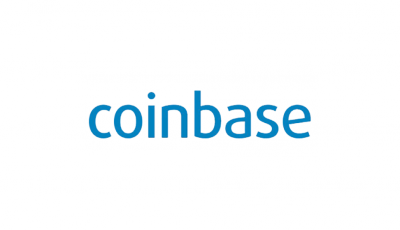Open Bitcoin Privacy Project assesses wallet privacy in new report
 The Open Bitcoin Privacy Project (OBPP) – an open-source, international organization whose goal is to improve financial privacy within the Bitcoin ecosystem – has released its Spring 2015 Wallet Privacy Rating Report.
The Open Bitcoin Privacy Project (OBPP) – an open-source, international organization whose goal is to improve financial privacy within the Bitcoin ecosystem – has released its Spring 2015 Wallet Privacy Rating Report.
In the report, the OBPP rates the 10 most popular Bitcoin wallets by measuring the wallets’ effectiveness at protecting users’ privacy.
Each wallet was subjected to 38 privacy tests grouped into five categories and 14 sub-categories with variable weights representing the relative importance of each measure. The result of each test was then converted to a raw numeric score between 0 and 100. The criteria used to assess the wallets are “receiving address generation and backup” (20.56 percent), “change address generation and backup” (20.56 percent), “privacy from blockchain observers” (22.78 percent), “privacy from network observers” (25 percent), and “receiver privacy” (11.11 percent).
Darkwallet ranked first in overall wallet privacy, with a score of 54 out of 100. The report notes that the Bitcoin wallet was the first to be “explicitly devoted to privacy as a primary design goal.” OBPP says in its report that “Darkwallet is generally successful in its attempt to avoid privacy. Some of the weaknesses include a reliance on third party Obelisk servers which have the ability to de-anonymize users; theoretically users could run their own Obelisk server, but this is beyond the capabilities of most potential Darkwallet users. Another factor that makes Darkwallet weaker than it could be is its relatively small user base, which makes CoinJoin unlikely to find a partner for on-demand mixing.”
Rounding out the rankings in overall wallet privacy are:
(2) Armory: In addition to support for advanced security features, this open-source desktop wallet compares favorably to competing wallets in terms of privacy, but Armory can improve privacy protections for users on the blockchain by supporting a mixing protocol such as CoinJoin, says the report. (Total Score: 54)
(3) Mycelium: While the OBPP notes Mycelium is the best performer of all mobile wallets in this round of rating, its score suffers from the method through which the wallet obtains balance information: dedicated Mycelium servers rather than connecting to Bitcoin network peers. This practice puts Mycelium in a position to collect identifying information about its users. While Mycelium has very good support for Tor in its wallet, connecting to Mycelium servers through Tor only partially mitigates this privacy weakness, according to the report. (Total Score: 50)
(4) Bitcoin Wallet: Andreas Schildbach’s Android-based Bitcoin Wallet is the oldest mobile Bitcoin wallet in use. While it holds up well in terms of privacy features compared to more feature-rich wallets due to its simple interface, its single largest mission feature compared to its mobile competition is multiple account support. The OBPP says in its report that Bitcoin Wallet’s software could improve user privacy protection by adopting practices such as mixing, use of shared secret addresses schemes, and better handling of privacy when obtaining balance information or broadcast transactions. (Total Score: 46)
(5) Electrum: This cross-platform lightweight desktop wallet is the only Bitcoin wallet to be included by default with the privacy-focused Linux distro Tails. It can also do two-factor authentication and provides compatibility with hardware wallets such as Trezor. The report notes that because the Electrum client connects to servers for data, users sacrifice privacy and must depend on trust in the blockchain information received. The OBPP suggests Electrum could improve by implementing features also lacking in other wallets, including ECDH address and mixing support, and by providing more detailed warnings to users before privacy violations take place. (Total Score: 46)
 (6) AirBitz: This is one of the first mobile wallets to use an HD architecture, which allows it to easily protect user privacy by automatically generating new addresses for receipt of funds and change, and allows for more advanced support for multiple accounts than many of AirBitz’s competitors. But the report states that additional controls are needed for AirBitz to thoroughly protect blockchain privacy, including randomizing output indexes and mixing funds. (Total Score: 45)
(6) AirBitz: This is one of the first mobile wallets to use an HD architecture, which allows it to easily protect user privacy by automatically generating new addresses for receipt of funds and change, and allows for more advanced support for multiple accounts than many of AirBitz’s competitors. But the report states that additional controls are needed for AirBitz to thoroughly protect blockchain privacy, including randomizing output indexes and mixing funds. (Total Score: 45)
 (7) Blockchain – Web: The OBPP notes that Blockchain.info served as early advocates for users to maintain control over their private keys. The service has sometimes led in protecting user privacy, the prime example of which was the early implementation of an optional CoinJoin-based, peer-to-peer mixing service called SharedCoin. But Blockchain’s Web wallet has recently lagged behind competitors. “Users must perform actions outside the normal sending and receiving workflows to avoid simple privacy pitfalls such as address reuse,” says the report. “Due to the lack of an HD architecture, fixing these blockchain privacy issues is a challenge, as is simplifying the steps required for users to backup wallets completely.” (Total Score: 22)
(7) Blockchain – Web: The OBPP notes that Blockchain.info served as early advocates for users to maintain control over their private keys. The service has sometimes led in protecting user privacy, the prime example of which was the early implementation of an optional CoinJoin-based, peer-to-peer mixing service called SharedCoin. But Blockchain’s Web wallet has recently lagged behind competitors. “Users must perform actions outside the normal sending and receiving workflows to avoid simple privacy pitfalls such as address reuse,” says the report. “Due to the lack of an HD architecture, fixing these blockchain privacy issues is a challenge, as is simplifying the steps required for users to backup wallets completely.” (Total Score: 22)
(8) Multibit: Multibit Classic has been a popular desktop client that competes with Electrum as a light client alternative to the reference full Bitcoin Core wallet, sparing users from downloading the entire blockchain. The report notes that in recent years, development focus has moved from Multibit Classic to an HD version of the software that is now in beta testing. The Classic version lacks basic controls to protect user privacy on the blockchain. Private keys are generated and held in a key pool, making backups more complicated and encouraging address reuse. The OBPP also notes that Multibit relies on weak privacy guarantees when obtaining balance information and broadcasting transactions. (Total Score: 19) Multibit shut down on July 26, 2017.
(9) Blockchain – Android: Like the Web wallet, users must click through additional steps to obtain basic blockchain privacy protections such as avoiding address reuse. Unlike the Web wallet, the mobile version does not include the SharedCoin service that makes it possible for users to bolster their blockchain privacy. The report notes that because the mobile wallet’s private keys are not determined deterministically from a seed, backups can become invalided or change address. As long as Blockchain.info continues to provide service to a given customer, however, the customer can recover funds from a single wallet mnemonic passphrase provided to them when they create an account. (Total Score: 14)
 (10) Coinbase: The company’s wallet can be subdivided into two components: a classic version, and Coinbase Vault. Both versions are pseudo-wallets in that Coinbase acts as a custodian of private keys, but Coinbase Vault allows users to retain some of the signing keys needed for a transaction. For this report the OBPP evaluated the classic version. The report notes that due to the custodial nature of Coinbase’s wallet, users are afforded low privacy. Private keys are generated and held server-side, and the service retains detailed information about incoming and outgoing transactions. Customers must go through a stringent identification process in order to use the service. The wallet generates new Bitcoin addresses for change, but uses few other basic controls to protect privacy on the blockchain. The OBPP suggests some improvements that can be made to the classic Coinbase wallet to protect user privacy without violating Know-Your-Customer guidelines, including discouraging address reuse and randomizing output indexes on the blockchain. (Total Score: 11)
(10) Coinbase: The company’s wallet can be subdivided into two components: a classic version, and Coinbase Vault. Both versions are pseudo-wallets in that Coinbase acts as a custodian of private keys, but Coinbase Vault allows users to retain some of the signing keys needed for a transaction. For this report the OBPP evaluated the classic version. The report notes that due to the custodial nature of Coinbase’s wallet, users are afforded low privacy. Private keys are generated and held server-side, and the service retains detailed information about incoming and outgoing transactions. Customers must go through a stringent identification process in order to use the service. The wallet generates new Bitcoin addresses for change, but uses few other basic controls to protect privacy on the blockchain. The OBPP suggests some improvements that can be made to the classic Coinbase wallet to protect user privacy without violating Know-Your-Customer guidelines, including discouraging address reuse and randomizing output indexes on the blockchain. (Total Score: 11)
Each individual privacy test was assigned one of three classifications: usability, quality, and feedback. Under usability rankings, Darkwallet placed first. Armory and AirBitz ranked first in the quality and feedback rankings, respectively.
Images:
AirBitz logo – courtesy of AirBitz
Coinbase logo – courtesy of Coinbase
Blockchain logo – File
Wallet image – File


![[Guest Post] Will Blockchain Help Streamline Data Management?](https://coinreport.net/wp-content/uploads/2019/01/Rae-Steinbach-400x230.jpg)









